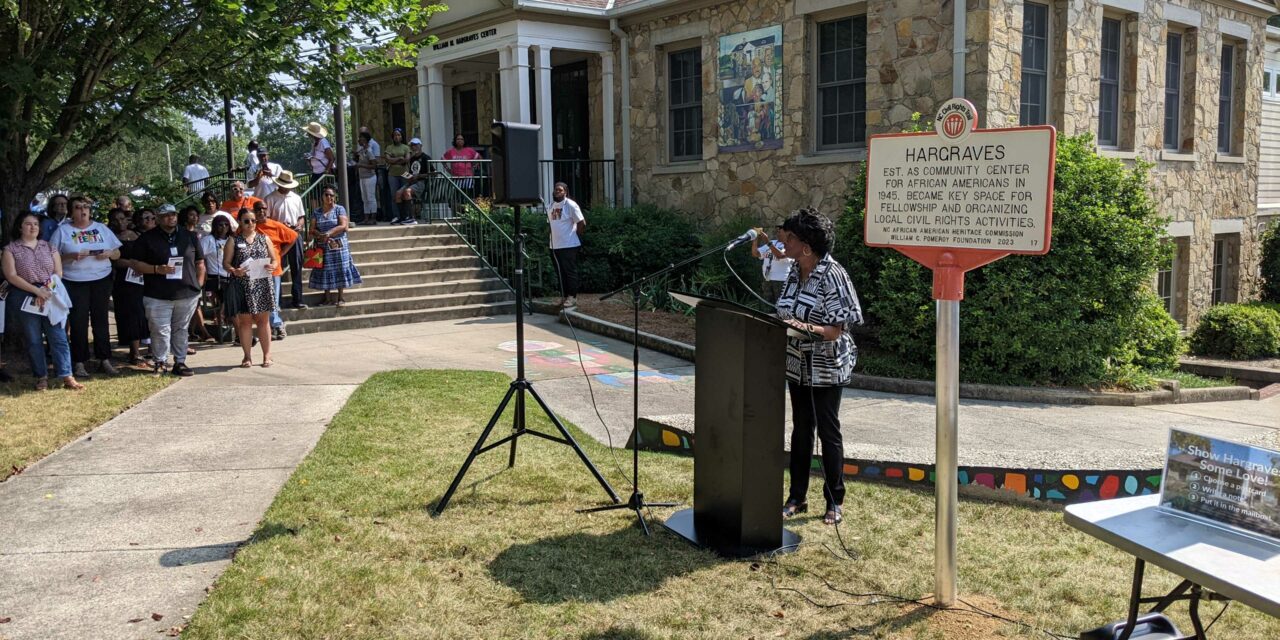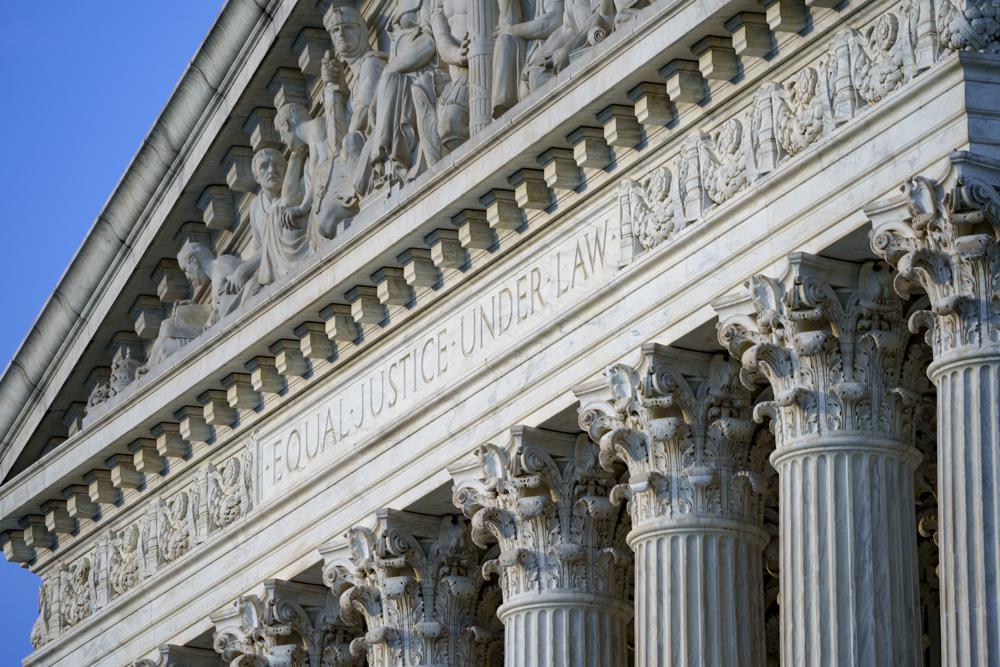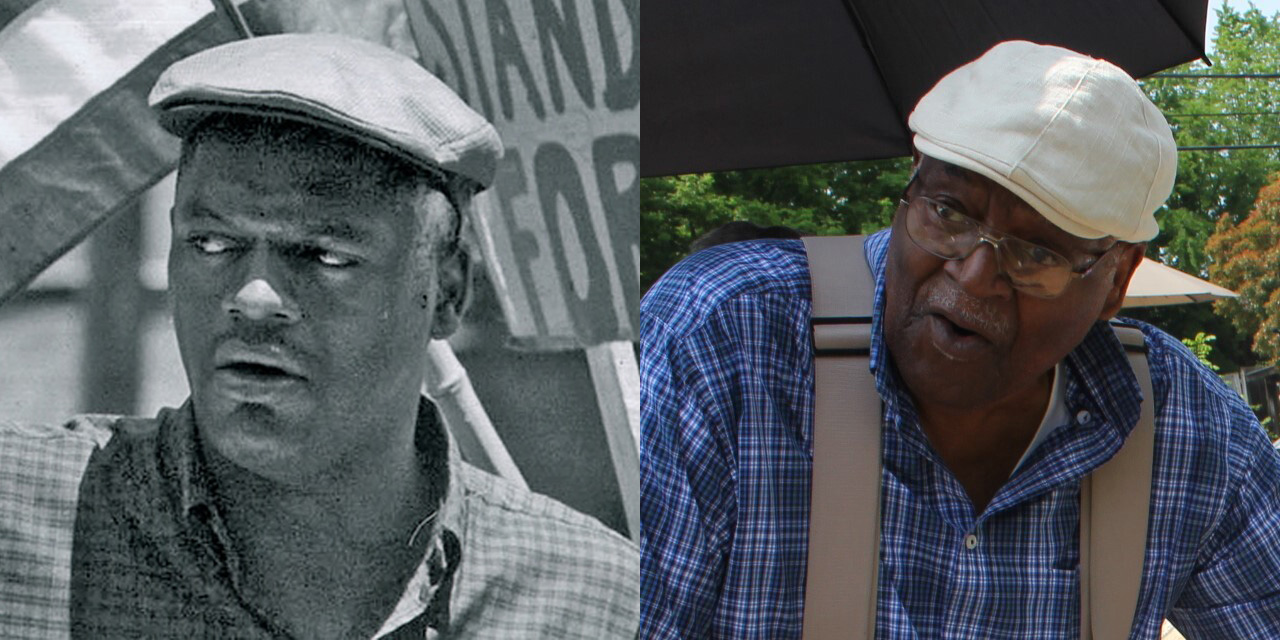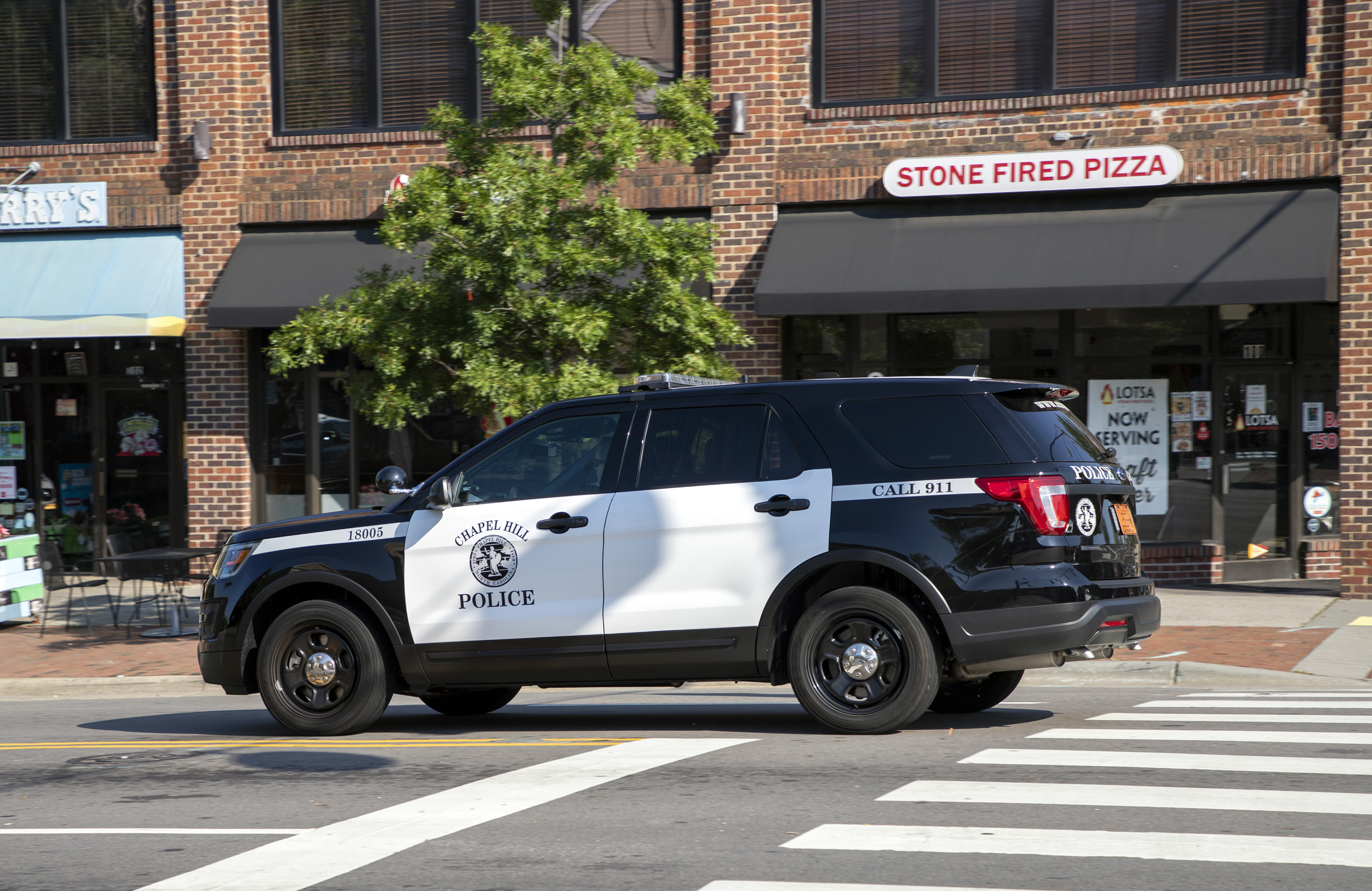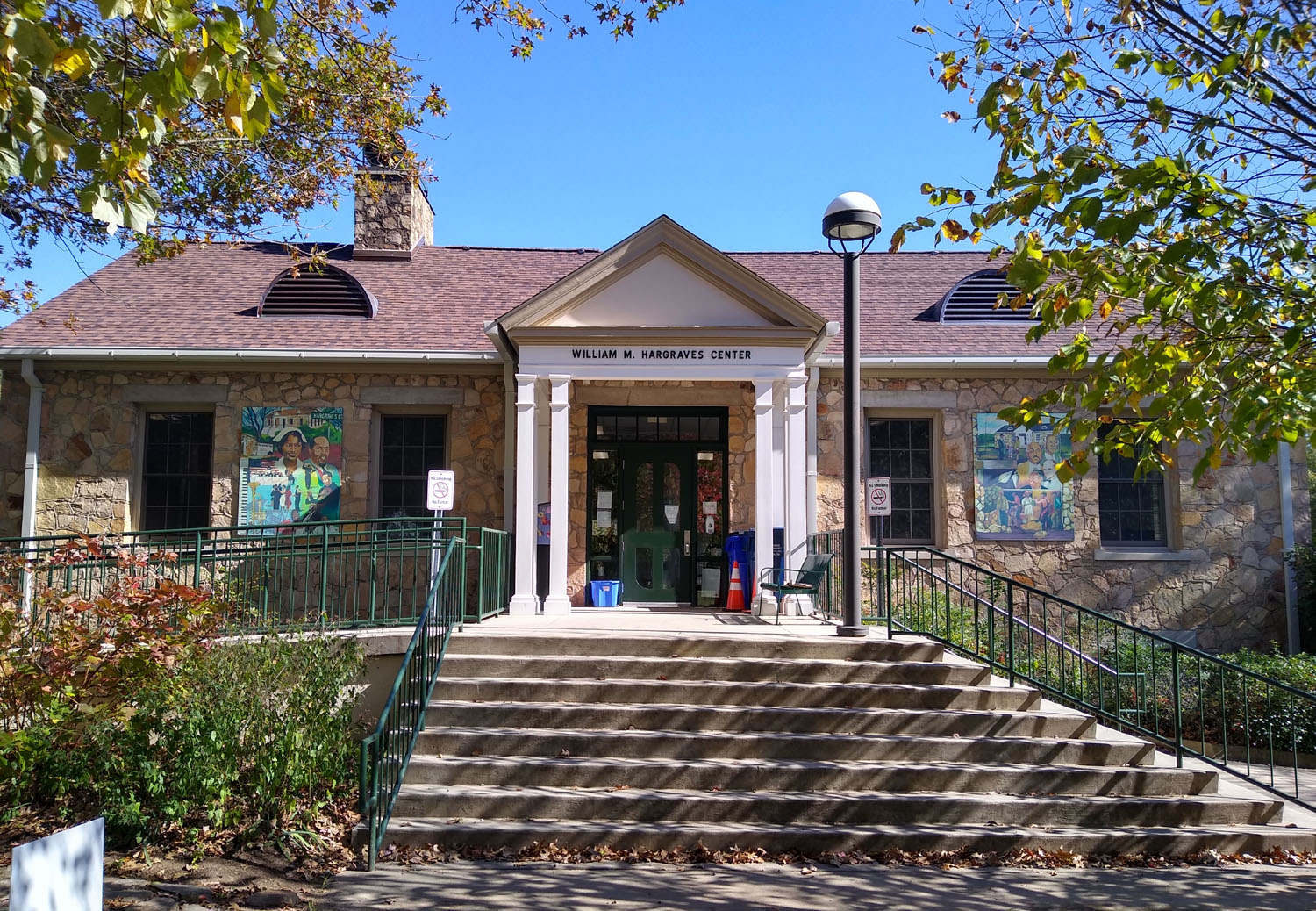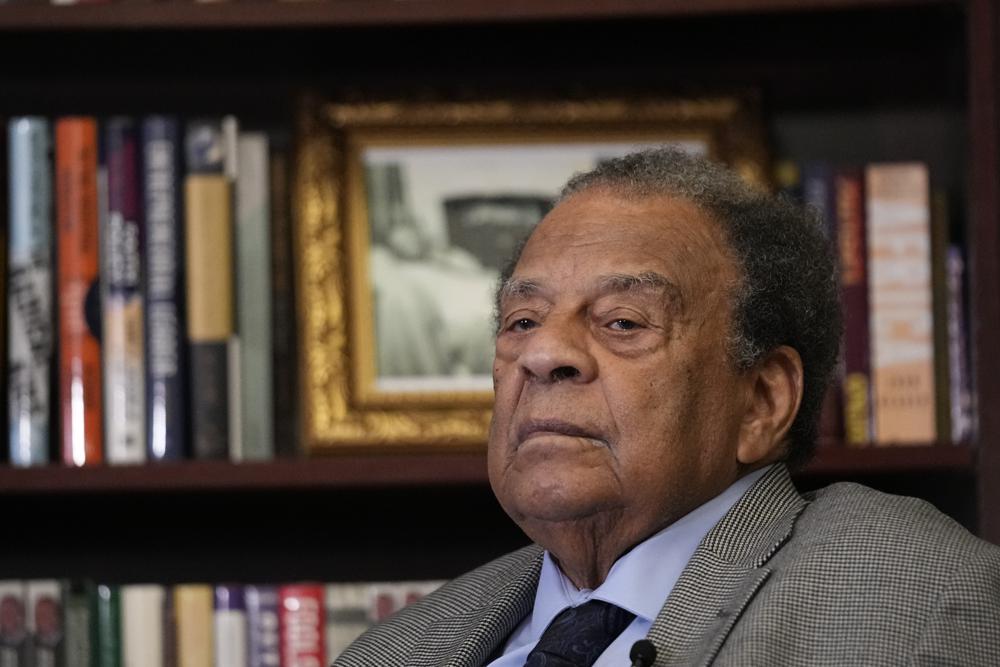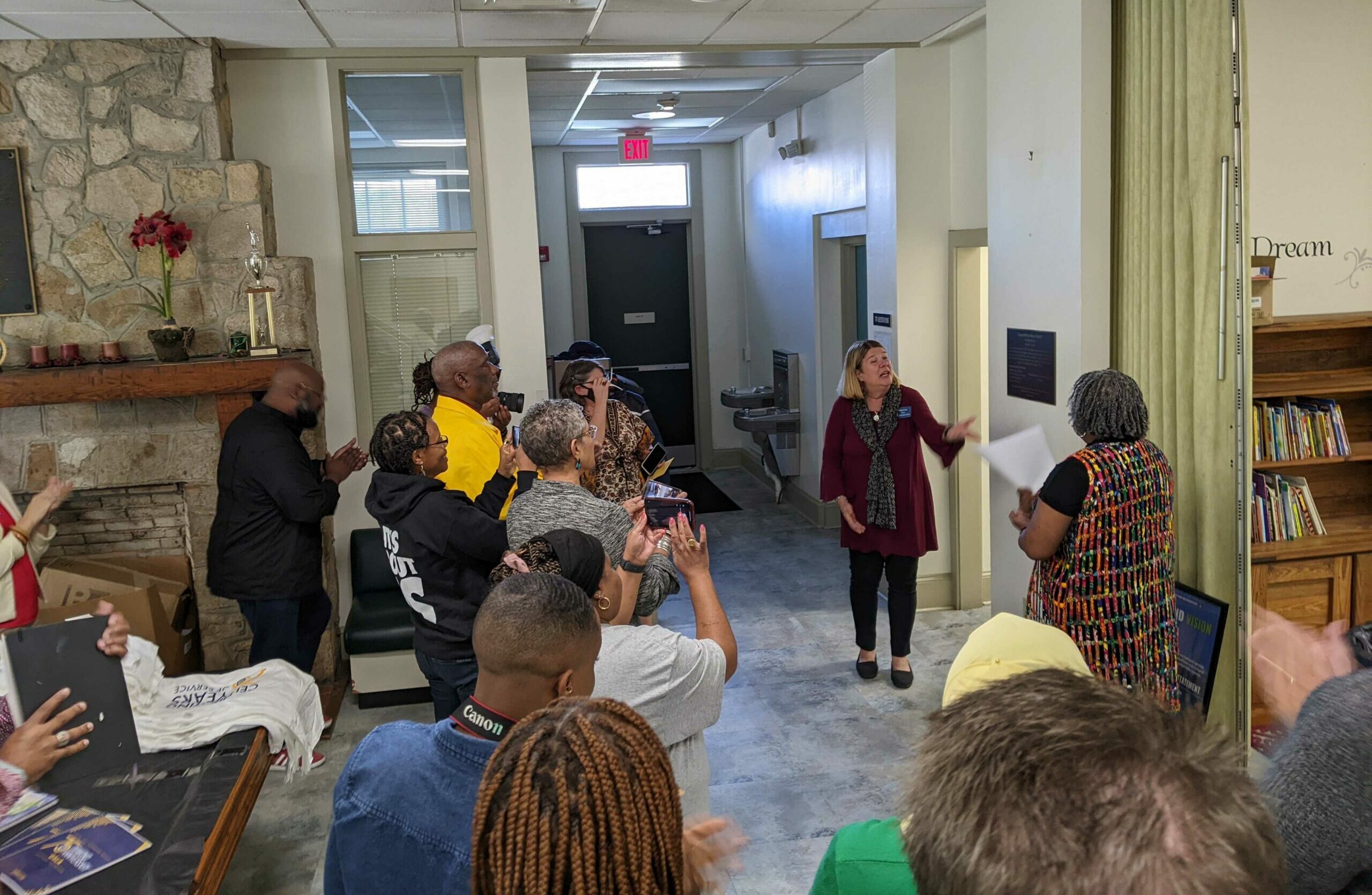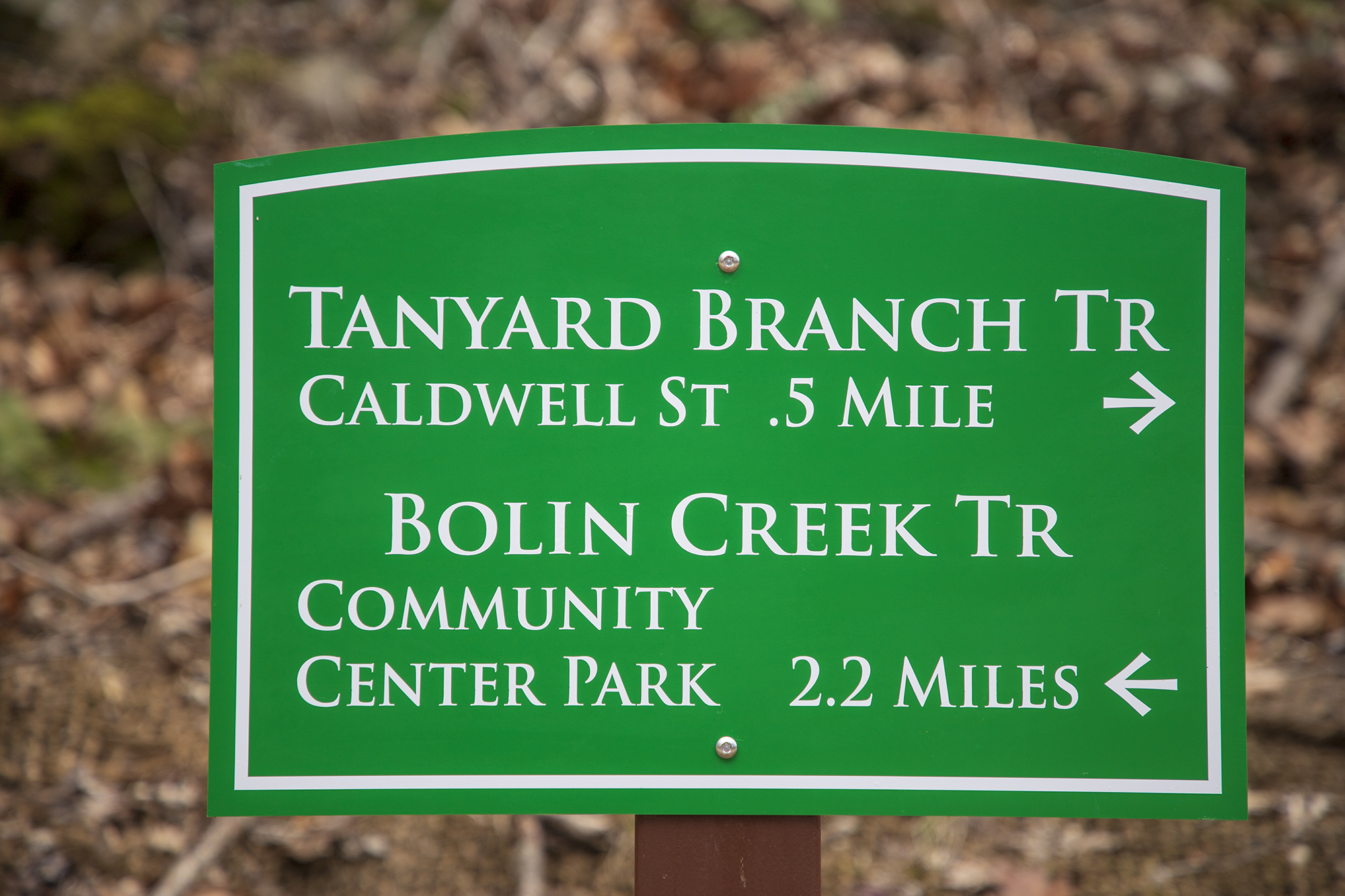As people walked down North Roberson Street on Saturday to attend the Juneteenth festival on its athletic fields, they passed the Hargraves Community Center building. Many Chapel Hill and Carrboro community members have gone in and out of its doors in the last 80 years — but those entering now will be greeted with an additional sign in the front lawn.
The Town of Chapel Hill unveiled a new marker at the Hargraves Community Center Saturday morning, announcing the property as part of the growing N.C. Civil Rights Trail. The salmon-colored sign informs visitors that the space was integral for the Black residents of Chapel Hill and Carrboro and their organization of local civil rights efforts across decades.
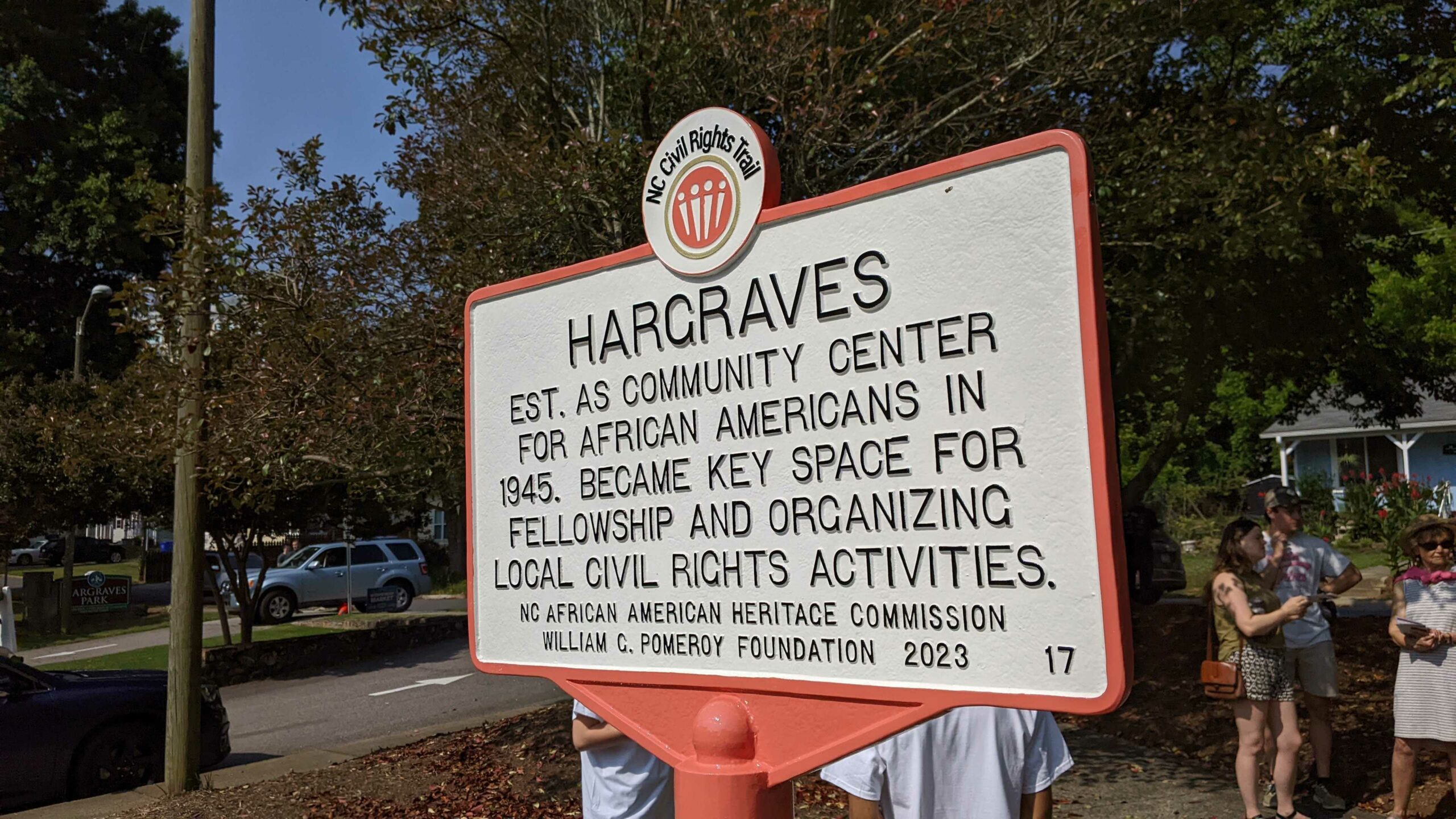
The full marker at Hargraves Community Center recognizing it as an integral part of the Civil Rights movement in North Carolina.
The Civil Rights Trail is a project of the North Carolina African American Heritage Commission, which is a state-funded group protecting and promoting the history, arts and culture of Black North Carolinians. The trail provides an online tool and physical markers to help dedicate places “critical to the Civil Rights Movement in North Carolina.” Sites can be where protests or sit-ins took place, the birthplaces or homes of civil rights icons, spaces where people organized events, places where civil rights icons visited, and more.
For the Hargraves Community Center, there are many ways it fits the criteria for an application of a marker. Initially used to house the visiting B-1 Navy Band in the early 1940s, the building quickly became the gathering place for Black residents and organizers. The Chapel Hill NAACP was founded there in 1947, demonstrators gathered there in 1960 after the Chapel Hill Nine’s sit-in at the Colonial Drugstore, and Martin Luther King Jr. spoke at the center in 1960. On a day-to-day basis, it served as a place to hold after-school programs, food distribution events, and — eventually — athletics on the basketball courts and at its pool.
During last year’s Juneteenth celebration at the park building, community members chose between a handful of town properties to apply for a Civil Rights Trail marker — and they overwhelmingly voted in favor of the Hargraves Community Center.
“It was no contest: Hargraves won by three times the votes,” said Molly Luby, the town’s Community History Coordinator. “This is a really important place and it is so beloved by the community.”
Once the center was selected, the trio of Luby, Hargraves Director John French, and Community, Arts & Culture Director Susan Brown teamed up to submit an application to the state’s African American Heritage Commission. From there, Associate Director Adrienne Nirdé said a committee of civil rights experts across North Carolina consider the sites.
While there are other community centers already on the Civil Rights Trail, Nirdé described the Hargraves Community Center’s present importance to the area as another way it stands out.
“Not only was it for adults and for having [civil rights leaders] speak here, but it’s also a safe space for kids that’s still standing and serving as an ongoing community resource,” she said. “It just happens to have this tie to such rich, significant history and I think that’s what’s really cool about it.”
On Saturday, a variety of Black leaders in Chapel Hill and Carrboro gathered to celebrate the recognition and share stories of their own times at the center during the unveiling ceremony.
U.S. Rep. Valerie Foushee, who represents Orange County and is a Chapel Hill native, shared memories of earning her first job at the community center: an office attendant for former director Fred Battle. She also detailed how she got to know her husband better through the center and her children were there “every day” until they were teenagers.
“Hargraves Center will always hold a special place in my heart,” said the congresswoman, “and this place deserves a symbol of resilience and perseverance of Chapel Hill’s Black community.
“Thank you to everyone who has been involved in the effort to memorialize the historical importance of this center,” Foushee continued. “This initiative sets an important example of commemorating places in our communities that hold such historical significance not only to preserve the past, but to teach our history to children, grandchildren, and generations to come.”
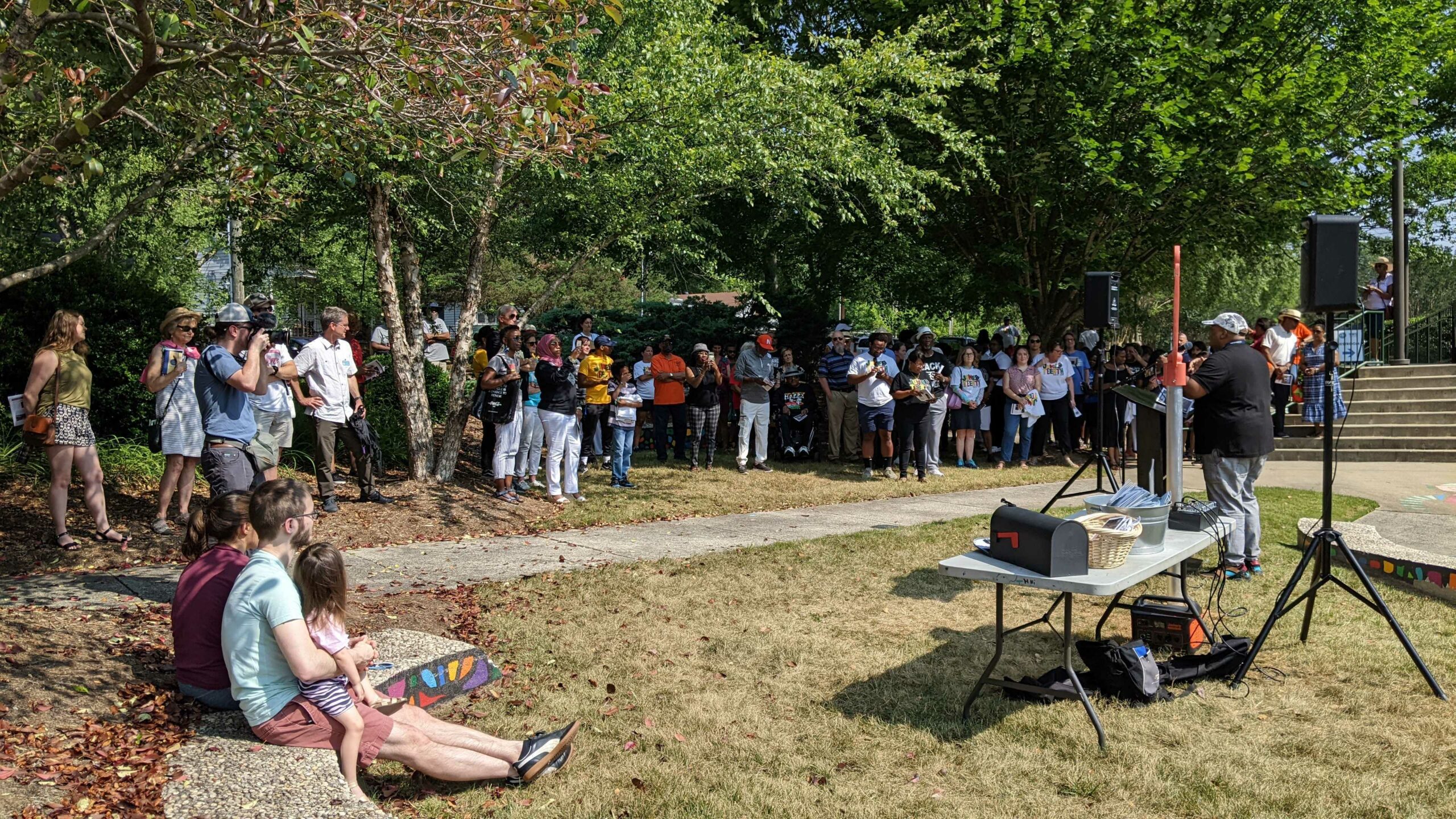
A crowd gathers as Chapel Hill’s Parks and Recreations Director Atuya Cornwell welcomes people to the dedication ceremony for the Hargraves Community Center’s inclusion to the N.C. Civil Rights Trail.
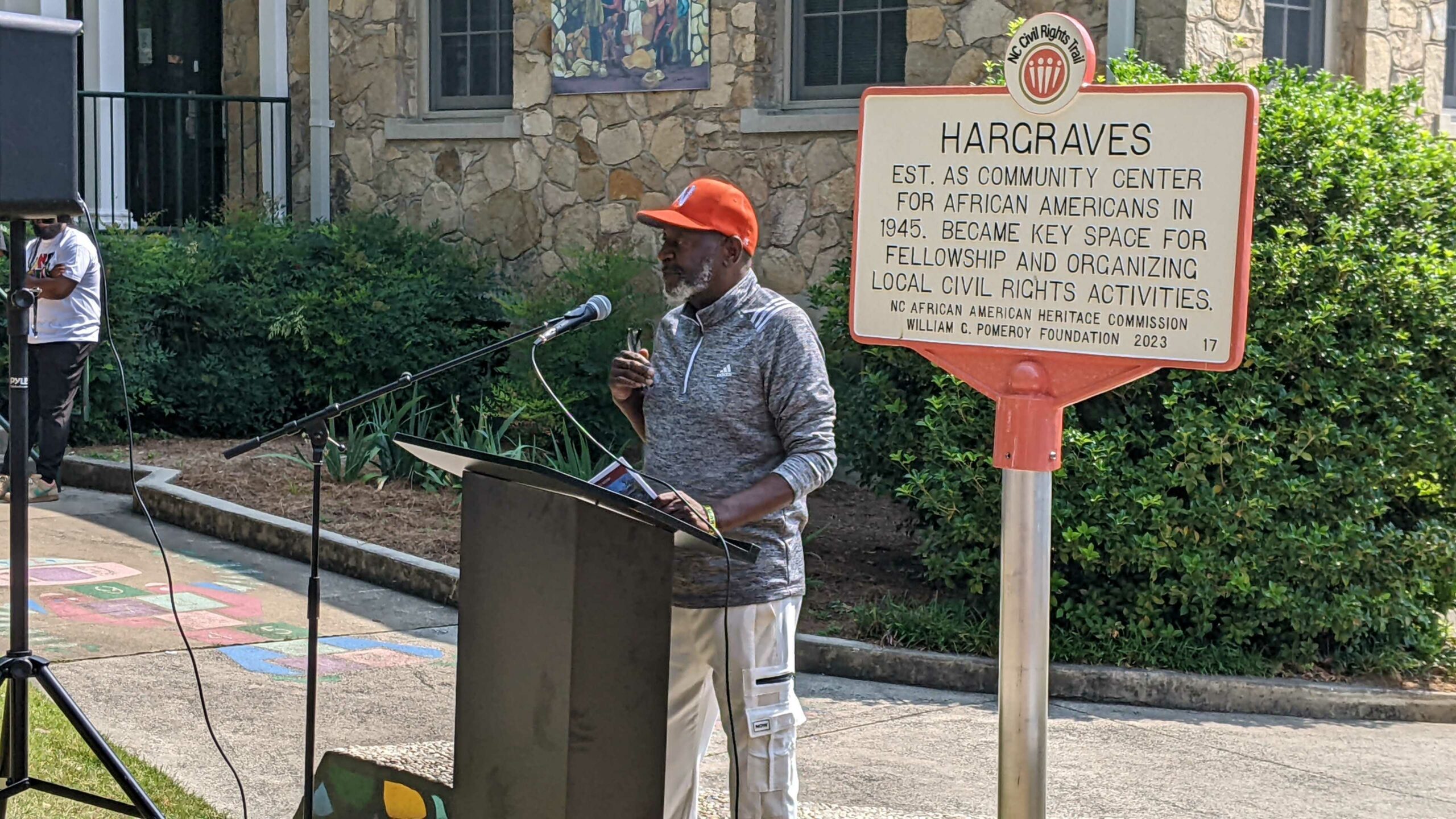
Former longtime director for the Hargraves Community Center Nate Davis speaks about the building’s history during the ceremony on June 17, 2023.
Nate Davis succeeded Battle as the director of the center, working in the role for 47 years before retiring in 2018. At the ceremony, he also detailed ways of how the center has impacted generations of children and how people still tell him stories of its influence on them years later.
Davis encouraged everyone there to not just celebrate Hargraves Community Center, but to champion and sustain its efforts to help Chapel Hill and Carrboro’s Black population.
“It’s going to take the community as a whole to continue to support this facility ,” he said, “and the things they need to do to reach the young people, middle-aged people, and older people in this [area.]”
Other sites along the N.C. Civil Rights Trail can be found on the program’s website. More of the Hargraves Community Center’s history can be found on the Open Orange website.
Chapelboro.com does not charge subscription fees, and you can directly support our efforts in local journalism here. Want more of what you see on Chapelboro? Let us bring free local news and community information to you by signing up for our biweekly newsletter.

